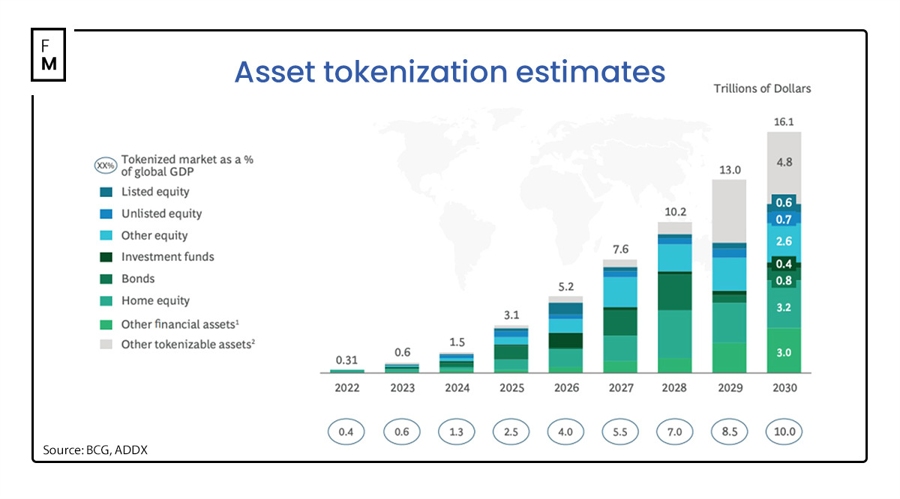We are standing on the cusp of a new era when digital and
traditional finance converge to create social and economic transformation.
Where barriers to entry once stood, technological advancements are making it
possible for anyone to access wealth-creation opportunities that were once the
domain of the elite few. At the forefront of this transformation is the
emergence of tokens, specifically those that represent real-world assets, such
as stocks, bonds, real estate and others.
By reimagining ownership and trading of assets, tokenization
is unlocking doors to financial opportunities previously out of reach to many.
This shift is not just altering market dynamics, it’s laying the foundation for
a more equitable and accessible financial future
when empowerment and freedom aren’t just ideals but tangible realities.
The ability to invest capital into assets, instead of
holding cash, is not a luxury but a necessity for every household
looking to survive and thrive. Holding cash, often perceived as a safe bet, is
a silent thief eroded by the relentless march of inflation. Consider this, $100
in 2004, sitting idly, would have the purchasing power of merely $60 today.
Contrast this, with the dynamism of the stock market the same amount invested
in the S&P 500 over the same period would have quintupled to an impressive
$470.
Yet, the landscape of stock ownership reveals a stark
imbalance. The wealthiest 10% in the US control an overwhelming 93% of stocks,
illustrating a deep-seated inequality in financial opportunity and access. This
inequality is magnified when looking at sectors like private equity and private
credit, where doors often remain closed to everyday investors.
Enter Tokenization, the Great Equalizer
While a distinctly counter-culture ethos characterized the
early days of blockchain, it wasn’t long before traditional financial
institutions sought to leverage this technology to improve existing
financial pipelines. Thus began the race to tokenize the world and empower
traditional assets like stock, bonds, and real estate with the benefits of blockchain, such as
24/7/365 trading, fractional ownership, transparency, and programmability.
“The most important first step is to get in there and start to engage in the ecosystem”—Sandy Kaul of @FTI_Global.
How banks and asset managers can get started with tokenization ⬇️ pic.twitter.com/kG2MdNrUdv
— Chainlink (@chainlink) April 17, 2024
Yet, perhaps the greatest advantage of the tokenization…
























